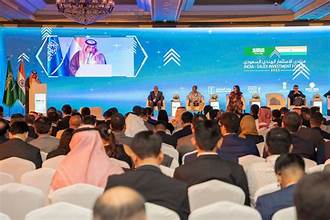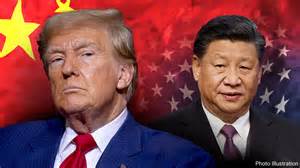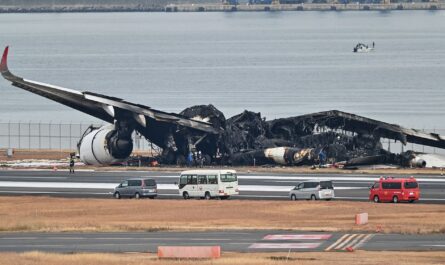Introduction
The announcement of a defense cooperation agreement between Pakistan and Saudi Arabia has attracted widespread attention both regionally and globally. While defense pacts often raise speculation about potential military alignments or regional rivalries, Pakistan’s Foreign Office (FO) has made it clear that this agreement is not directed against any third country. Instead, it is rooted in strengthening bilateral relations, enhancing defense capabilities, and supporting mutual security interests.
This clarification comes at a crucial time when the Middle East and South Asia face shifting security landscapes, heightened regional tensions, and evolving geopolitical alliances. Pakistan, which has historically shared close political, religious, and economic ties with Saudi Arabia, sees this agreement as a natural extension of its long-standing partnership with the Kingdom.
In this blog, we will explore the background of Pakistan-Saudi relations, the scope of the defense pact, the FO’s clarification, and the implications for regional and global dynamics.
Historical Background of Pakistan-Saudi Arabia Relations
Pakistan and Saudi Arabia share one of the closest bilateral relationships in the Muslim world. Since Pakistan’s independence in 1947, the two countries have nurtured ties based on shared faith, mutual respect, and strategic cooperation.
- Religious and Cultural Bonds: As the custodian of Islam’s two holiest sites, Saudi Arabia holds spiritual significance for Pakistan, which is home to one of the largest Muslim populations in the world. This religious bond has translated into robust people-to-people connections, with thousands of Pakistanis traveling to the Kingdom each year for Hajj and Umrah.
- Economic Ties: Saudi Arabia is one of Pakistan’s largest trade partners and a critical source of remittances. Millions of Pakistani workers contribute to the Saudi economy, while their earnings support countless families back home. The Kingdom has also extended financial assistance to Pakistan in the form of oil facilities, loans, and grants during times of economic distress.
- Defense Cooperation: The defense relationship dates back decades. Pakistani military advisors and trainers have served in Saudi Arabia since the 1960s. The two countries regularly hold joint military exercises and collaborate in intelligence sharing and counterterrorism initiatives.
Thus, the new defense pact builds upon this foundation of trust and collaboration rather than signaling any new or aggressive shift in policy.
The Nature of the Defense Pact
While the exact details of the defense cooperation agreement remain confidential due to its strategic nature, officials have shared that the pact includes:
- Military Training and Joint Exercises: Enhancing interoperability between the armed forces of both nations.
- Defense Production Cooperation: Exploring joint ventures in defense technology and manufacturing.
- Counterterrorism Collaboration: Strengthening coordination to counter extremist groups and transnational threats.
- Capacity Building: Expanding Pakistan’s role in training Saudi officers and providing expertise in defense planning.
The agreement is not unusual; it follows a history of military collaboration between the two nations. However, given the sensitive geopolitical context of the Middle East—particularly tensions involving Iran, Yemen, and broader regional rivalries—it naturally raised questions.

FO’s Clarification
Recognizing these speculations, Pakistan’s Foreign Office clarified that the pact is not aimed at any third country. The FO emphasized that the agreement should be viewed in the context of long-standing bilateral defense cooperation rather than as a strategic alignment against any regional player.
This clarification serves multiple purposes:
- Regional Neutrality: Pakistan seeks to maintain a balanced relationship with countries in the Middle East, particularly Iran, with whom it shares a long border.
- Diplomatic Balance: By stressing that the agreement is not targeted at any third country, Pakistan reassures its neighbors that its cooperation with Saudi Arabia is defensive and bilateral, not offensive or hostile.
- Image of Responsibility: The statement underlines Pakistan’s commitment to peace and stability in the region, portraying it as a responsible player that avoids unnecessary confrontations.
Geopolitical Context
The timing of this pact is significant. The Middle East is witnessing volatile dynamics:
- Iran-Saudi Rapprochement: With China brokering a rapprochement between Iran and Saudi Arabia in 2023, both countries have been working to ease tensions. Pakistan, sharing ties with both, has a vested interest in regional harmony.
- Conflict in Yemen: Saudi Arabia’s security concerns regarding Yemen remain unresolved, though ceasefires have reduced hostilities. Pakistan’s defense cooperation could provide indirect support, but Islamabad has repeatedly clarified that it avoids involvement in external conflicts.
- Great Power Competition: The Middle East continues to be a zone of competition for influence among global powers such as the US, China, and Russia. Pakistan and Saudi Arabia’s closer cooperation can also be seen within this broader framework.
Implications for Pakistan
The pact carries several important implications for Pakistan:
- Strengthening Defense Capabilities: The agreement opens avenues for advanced training and technology sharing, helping Pakistan modernize its armed forces.
- Economic Opportunities: Defense collaboration could also lead to defense industry contracts and investments, boosting Pakistan’s struggling economy.
- Diplomatic Leverage: Stronger ties with Saudi Arabia give Pakistan greater influence in Middle Eastern affairs and at forums like the Organization of Islamic Cooperation (OIC).
- Strategic Balance: The pact allows Pakistan to deepen ties with Saudi Arabia without undermining its relations with Iran or other neighbors.

Implications for Saudi Arabia
For Saudi Arabia, this pact is equally beneficial:
- Expertise from Pakistan: The Pakistan military’s experience in counterterrorism, guerrilla warfare, and training makes it a valuable partner.
- Trusted Ally: Pakistan remains a dependable ally in the Muslim world, especially as Saudi Arabia navigates shifting global alliances.
- Defense Diversification: By working with Pakistan, Riyadh reduces its dependence solely on Western defense partners.
Addressing Regional Concerns
Despite the FO’s assurance, concerns in the region may persist. Countries like Iran might view closer Saudi-Pakistan defense ties with caution, even if the pact is declared non-hostile. However, Pakistan’s careful diplomatic messaging—coupled with its recent efforts to mediate between Saudi Arabia and Iran—positions it as a bridge-builder rather than a partisan actor.
The pact, therefore, must be seen less as a threat and more as a stabilizing measure to enhance bilateral cooperation without destabilizing the regional balance of power.
Conclusion
The Pakistan-Saudi Arabia defense pact is a continuation of decades-long collaboration between two brotherly nations. While global and regional observers may speculate about its implications, Pakistan’s Foreign Office has unequivocally stated that it is not directed against any third country.
In a world where alliances are often interpreted as hostile moves, Pakistan’s clarification highlights its diplomatic intent to maintain neutrality, promote stability, and strengthen bilateral ties without alienating others. Both Pakistan and Saudi Arabia stand to gain from enhanced defense cooperation, but the real test lies in how successfully Islamabad manages its relationships with other regional players while reaping the benefits of this partnership.



